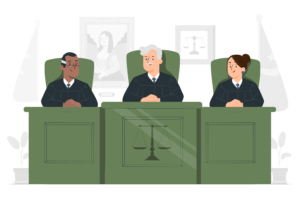
Probate fees (officially called Estate Administration Tax in Ontario) are often viewed as avoidable costs that can reduce the value of your Estate. With proper planning, you can significantly reduce—if not eliminate—probate fees and ensure more of your assets go directly to your loved ones.
Smart Strategies for Your Estate Plan
- Joint Ownership with Right of Survivorship
Holding assets jointly with another person (usually a spouse) ensures that, upon your death, the assets pass directly to the surviving owner and bypass probate. Common examples include real estate, joint bank accounts, and investment properties. However, joint ownership also comes with risks, such as exposure to the co-owner’s creditors, tax implications, and potential family disputes, so take care in choosing your joint owner.
- Naming Beneficiaries Directly
Assets like RRSPs, RRIFs, TFSAs, and life insurance can have named beneficiaries. When you designate a beneficiary on these accounts, the proceeds transfer directly to them and avoid the probate process. Regularly review your designations to ensure they reflect your current wishes. Final Reminder: Always add a Contingent Beneficiary just in case disaster hits you and your named Beneficiary.
- Gifting Assets During Your Lifetime
Giving away assets before you pass away removes them from your Estate and, in most cases, from probate calculations. Canada does not have a gift tax, but capital gains may be triggered with transfers of certain properties like real estate or investments. Consult a tax professional before making sizeable gifts.
- Setting Up a Living Trust
A living trust (or inter vivos trust) allows you to place assets under the control of a trustee for the benefit of your chosen beneficiaries, both during your life and after you pass. Assets settled in a living trust generally do not form part of your probate Estate. Trusts have setup and administrative costs and may not be suitable for every situation, but can be powerful tools for high-value or complex Estates.
- Creating Multiple Wills (Ontario & BC)
Ontario and BC allow you to use ‘primary’ and ‘secondary’ wills: one for assets that require probate (like bank and investment accounts), and one for assets that do not (such as private company shares and certain personal property). Only the assets in the primary will are subject to probate fees, minimizing your total estate administration tax.
Key Takeaways
- Review your asset ownership and make smart use of joint tenancies, beneficiary designations, and gifting.
- Consider trusts and dual Wills for complex or sizable estates.
- Always consult an estate planning lawyer and financial advisor to ensure strategies suit your needs and avoid unintended tax or legal consequences.
With these tools, you can keep more of your wealth in the family—and out of probate. Keep your Wills and Estate plans updated regularly to reflect life changes and evolving tax rules.
You might want to read our post on, Should I Try to Save Probate Fees by Putting My Home in my Children’s Name as a Joint Owner?
Want more information?
Are you interested in a consultation with Peter R. Welsh?
Contact me at Peter@SmartWills.ca
By telephone 416-526-3121
Register for our blog to get valuable tips and up-to-date alerts.
This material is for general information and educational purposes only. Information is based on data gathered from what we believe are reliable sources. It is not guaranteed as to accuracy, does not purport to be complete and is not intended to be used as a primary basis for investment decisions.


